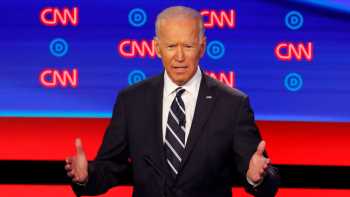In retrospect, CNN made it clear from the start what it wanted from hosting the Democratic debates. For the first night, it pitted “The Progressives” against everyone else in such a way that denigrating Senators Bernie Sanders and Elizabeth Warren’s brand of liberalism became a requisite kickoff to any answer. For the second night, it put Senator Kamala Harris and former Vice President Joe Biden center stage for a “critical rematch” in the hopes that the fireworks of the first debate, in which Harris landed devastating blows to Biden on his civil rights record, might be repeated. (On that front, CNN mostly got its wish; Harris and Biden ended up defending their records more against the rest of the stage than each other.)
It makes sense that a network would keep an eye out for likely outcomes going into a debate night and accordingly prepare to handle them. But it’s another thing entirely for CNN to nudge people into performing the roles it wants of them with leading questions aimed more at starting fights than shedding light.
Both debates covered a wide swath of pressing issues including health insurance, racial injustice, and even the usually unspoken specter of climate change. But the ways in which moderators Jake Tapper, Dana Bash, and Don Lemon asked about them were almost always phrased to maximize the potential for combative answers. The first “Progressives” night challenged Warren and Sanders’ competitors to answer “yes” or “no” to questions like, “are Senator Sanders’ proposals going to incentivize undocumented immigrants to come into this country illegally?” The second “critical rematch” night began questions with descriptions of the disparities between candidates’ policies before ending with a blunt, “why is s/he wrong?” In one strange moment that highlighted how poorly primary debates have handled climate change in the past, Bash prodded Governor Jay Inslee about his campaign prioritizing the issue above all else by asking, “what do you know that the others don’t?” (as if the myriad catastrophic studies CNN rarely covers given what a bummer they are shouldn’t be enough).
The candidates often took the bait. But they also increasingly became frustrated at the framework CNN used to question them, and with good reason. These kinds of questions aren’t asked in good faith that an informative answer isn’t far behind. They’re asked to encourage sniping onstage that could make for a pithy clip to go viral. They chase explosive moments, not the kind of insight that people actually need to understand where a candidate stands. They represent cable news at its least helpful and most opportunistic. If CNN continues to conduct debates with a goading hand rather than a guiding one, all it’ll do is serve its own interests rather than the country’s — but maybe that, in the end, is exactly the point.
Source: Read Full Article
